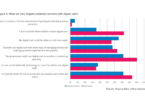The Monetary Authority of Singapore (MAS) previously unveiled Project Dunbar, a central bank digital currency (CBDC) platform where multiple countries issue digital currencies on a shared blockchain, a so-called Multi-CBDC (M-CBDC). In conjunction with the Bank for International Settlements (BIS) Innovation Hub, today it was announced that the Reserve Bank of Australia, Bank Negara Malaysia, and South African Reserve Bank will also participate in cross-border settlement trials.
These M-CBDC platforms are for wholesale CBDCs that can only be used by regulated institutions. A previous trial between MAS and the Banque de France used JP Morgan’s Onyx solution based on Quorum, the Ethereum enterprise blockchain. However, today’s announcement states that multiple blockchain technologies and partners will be involved in the trials. Given it proposes a shared platform, different governance structures will be explored as well as designs.
Sopnendu Mohanty, Chief FinTech Officer, MAS spoke about how Dunbar will contribute to making “payments cheaper and faster. The findings on how a common platform can be governed effectively and managed efficiently will shape the blueprint of the next generation payment systems.”
Results will be shared in November of this year at the Singapore FinTech Festival.
The G20 has set a plan to address the frictions in cross border payments which are expensive, slow, and lack transparency. Banks in different countries don’t share the same opening hours, which means that legacy systems often don’t execute round-the-clock instant payments.
A key friction is the use of intermediary correspondent banks where the sending bank doesn’t have an account at the destination, which adds to the know your customer (KYC) burden. The goal of these multi-CBDC systems is to have a 24/7 platform for direct real-time payments without intermediaries.
“After years of mostly domestic research and exploration, we are very pleased to see that these common insights about the need to explore cross-border CBDC payments and interoperability are coming together internationally,” said Deputy Governor Rashad Cassim, South African Reserve Bank.
“We are particularly excited to be part of Project Dunbar given the SARB’s role in operating the regional wholesale settlement system in the Southern African Development Community.”
There’s not just the issue of the payments for international transactions, but also the need for foreign exchange. The French – MAS trial borrowed from the decentralized finance (DeFi) world by using automated market-making (AMM) and liquidity management for the foreign exchange EUR/SGD pair. This is one of the ways of enabling an around-the-clock solution.
The BIS is trialing two entirely different solutions for cross border CBDC. In the case of Project Dunbar, it’s a shared infrastructure for the M-CBDC. Meanwhile, another approach is being explored in the mCBDC Bridge project, which is trying to make four separate CBDCs interoperable. Thailand, Hong Kong, China and the UAE are participating in that trial.






